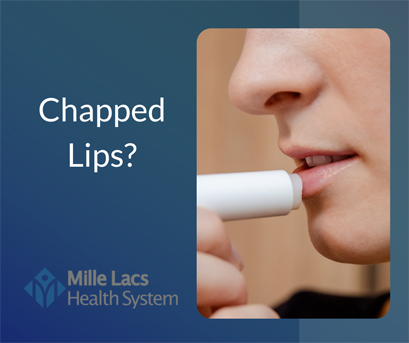Tis the season for chapped lips
November 1, 2022
Fall brings in cool, dry air which can be tough on skin, especially on the lips. The lips are exposed to the elements more than the rest of the body and can easily become chapped. The skin on the lips is thinner and more sensitive, particularly because the lips do not contain any oil glands.
Chapped lips are dry and tight and can be very uncomfortable. Severely chapped lips may cause painful stinging reactions when eating, especially with citrus fruit, spicy and salty foods.
Chapped lips can occur with anyone and at any age, but children who lick their lips often are more susceptible. Oftentimes for children, the chapped lips progresses to a rash around the mouth. Other causes of chapped lips can be: reaction to a medication, wearing irritating lipstick/lip balm, a vitamin deficiency (iron or vitamin B), or dehydration.
Once your lips start to feel dry there are some simple steps to take to treat them such as: drink more water, apply lip balm as needed throughout the day (with SPF when outdoors), use a humidifier at home, and avoid licking/biting lips. Typically the most successful way to protect or heal lips is with frequent lip balm application. It is suggested to reapply lip balm six to eight times a day.
When choosing a lip balm, focus on ingredients that are: fragrance-free, hypoallergenic, ointments (petroleum jelly, glycerin), oil (mineral oil or caster seed oil), and moisturizing. Avoid lips balms with fragrances or flavors, menthol, and eucalyptus.
If you treat your chapped lips and they get worse or do not improve over a few weeks, visit your healthcare provider for advanced treatment options.
